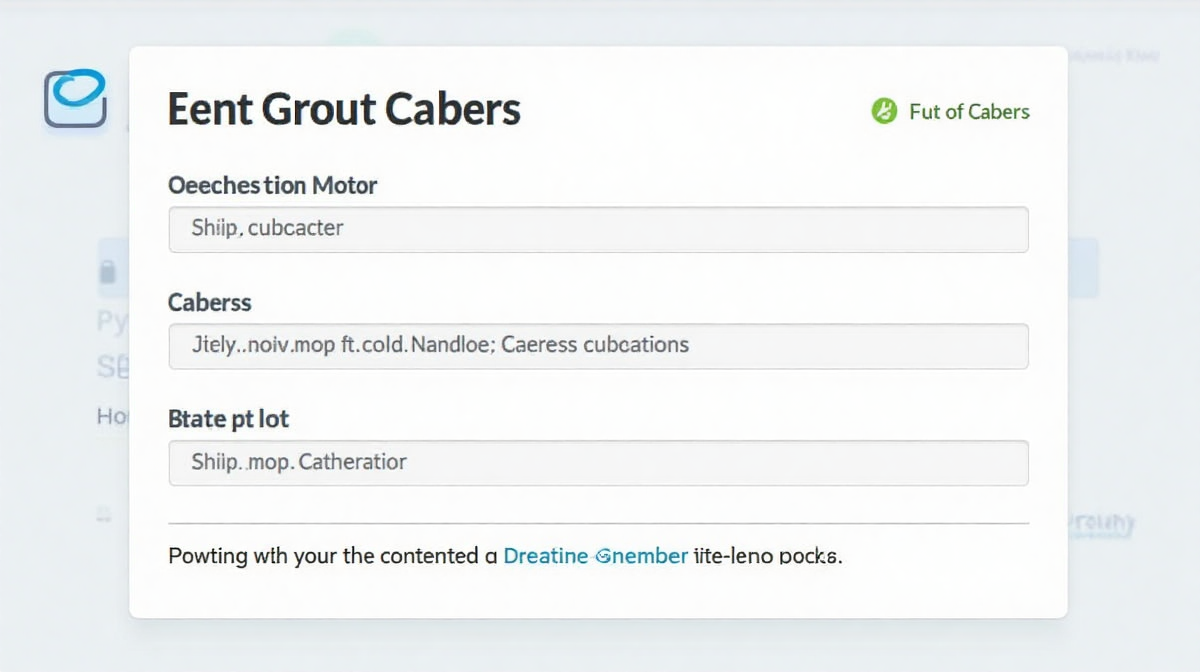Lotus 365 vs Competitors: Which is Best?
Introduction: Understanding Lotus 365 & the Collaboration Landscape
What is Lotus 365? A Modern Overview
Lotus 365 represents a significant evolution in collaborative software, building upon the legacy of Lotus Notes and Symphony while embracing modern cloud-based delivery. It's a comprehensive suite designed to streamline communication, enhance productivity, and improve team collaboration for businesses of all sizes. While historically a strong player in enterprise solutions, Lotus 365 has adapted to meet the demands of today’s dynamic work environment. It offers a range of tools including email, calendar, instant messaging, document management, and video conferencing.
The Growing Need for Collaboration Suites – Why the Choice Matters
In today’s interconnected world, effective collaboration is no longer a luxury, but a necessity. Teams are increasingly distributed, projects are more complex, and the pace of work is accelerating. Choosing the right collaboration suite can significantly impact a company's efficiency, innovation, and overall success. Failing to select a suite that aligns with a company’s specific needs can lead to communication silos, duplicated efforts, and decreased productivity.
Key Competitors We’ll Be Examining
The collaboration suite market is crowded, with several prominent players vying for dominance. Microsoft 365, with its established presence and comprehensive feature set, is a major contender. Google Workspace, known for its simplicity and seamless integration, is another key competitor. Zoho Workplace offers a cost-effective alternative, while others like Box and Dropbox specialize in file storage and collaboration. Understanding the strengths and weaknesses of each suite is crucial for making an informed decision. And for those following the sports world, alongside work, many are also interested in topics like most sixes in ipl 2024 and checking the match schedule ipl 2024.
Lotus 365: Core Features & Functionality
Lotus 365's Email & Calendar – Key Features and Integrations
Lotus 365’s email and calendar functionality provide a robust platform for managing communications and scheduling. Features include advanced search capabilities, customizable views, and integration with other Lotus 365 applications. It allows for seamless scheduling of meetings, resource booking, and task management.
Instant Messaging & Team Chat Capabilities
The instant messaging and team chat capabilities within lotus 365. are designed to facilitate real-time communication and collaboration. It offers features like file sharing, screen sharing, and group chats, providing a flexible and efficient way for teams to connect.
Document Management & Collaboration – Symphony/Notes Integration
A key strength of Lotus 365 lies in its integration of Symphony and Notes. This allows users to leverage existing documents and workflows while benefiting from the modern features of the suite. Document management features include version control, access control, and collaborative editing.
Meeting & Video Conferencing Features within Lotus 365
Lotus 365’s meeting and video conferencing features enable teams to connect face-to-face regardless of location. Features include screen sharing, recording, and virtual whiteboards, facilitating productive and engaging meetings.
Security & Compliance Features: A Deep Dive
Security is paramount in today’s digital landscape, and Lotus 365 prioritizes data protection. It offers features like data encryption, access controls, and audit trails to ensure the confidentiality, integrity, and availability of data.
Mobile Accessibility & App Availability
Lotus 365 offers mobile apps for both iOS and Android, allowing users to stay connected and productive on the go. These apps provide access to email, calendar, instant messaging, and document management.
Lotus 365 vs. Microsoft 365: A Head-to-Head Comparison
User Interface & Ease of Use – Lotus 365 vs. Outlook & Teams
Microsoft 365, with Outlook and Teams, boasts a widely familiar interface. Lotus 365, while modernized, may have a steeper learning curve for users accustomed to Microsoft’s offerings.
Feature Parity: What Microsoft 365 Does Better
Microsoft 365 generally offers a broader range of features, particularly in areas like data analytics and advanced business intelligence. Lotus 365, however, excels in specific areas like customization and integration with legacy systems. Knowing how to play on lotus 365 can unlock these benefits.
Integration with Existing Systems: Microsoft’s Ecosystem Advantage
Microsoft 365’s tight integration with other Microsoft products, such as Windows and Active Directory, provides a significant advantage for organizations already heavily invested in the Microsoft ecosystem.
Cost Analysis: Lotus 365 vs. Microsoft 365 Pricing Plans
The cost of each suite varies depending on the plan and features selected. Lotus 365 often presents a competitive pricing structure, especially for organizations seeking specific functionalities.
Target Audience: Who is Each Suite Best Suited For?
Microsoft 365 is well-suited for large enterprises and organizations deeply integrated with the Microsoft ecosystem. Lotus 365 is a solid choice for organizations that prioritize customization, security, and integration with legacy systems.
Lotus 365 vs. Google Workspace: A Detailed Analysis
Simplicity & Collaboration: Google Workspace’s Strengths
Google Workspace is renowned for its simplicity and ease of use, making it a popular choice for teams that prioritize collaborative document editing and real-time communication.
Lotus 365’s Unique Advantages over Google Workspace
Lotus 365 offers stronger security features and greater customization options compared to Google Workspace, making it a preferred choice for organizations with stringent security requirements or complex workflows.
Document Editing & Sharing: Docs, Sheets, Slides vs. Symphony
Google Docs, Sheets, and Slides provide a user-friendly document editing experience. Lotus 365’s Symphony offers comparable functionality, with a focus on enterprise-level features and integration with legacy systems.
Meeting and Communication: Google Meet vs. Lotus 365 Meetings
Google Meet is widely used for video conferencing, offering a reliable and intuitive experience. Lotus 365 Meetings provide a similar set of features, with a focus on security and integration with other Lotus 365 applications.
Pricing Comparison: Google Workspace vs. Lotus 365 – Which is More Affordable?
Google Workspace generally offers a more affordable entry point, while Lotus 365 may be more cost-effective for organizations requiring specific features or integrations.

Beyond the Giants: Lotus 365 vs. Other Collaboration Suites
Lotus 365 vs. Zoho Workplace: A Feature & Price Breakdown
Zoho Workplace provides a cost-effective alternative to the larger players. Lotus 365 offers greater customization options and tighter integration with legacy systems.
Lotus 365 vs. Box/Dropbox: Focusing on File Storage & Collaboration
Box and Dropbox specialize in secure file storage and collaboration. Lotus 365 provides a more comprehensive suite of tools, including email, calendar, and instant messaging.
Other Notable Alternatives and how Lotus 365 stacks up.
Slack excels in team communication, while Asana focuses on project management. Lotus 365 offers a broader range of functionalities, making it a more versatile solution for organizations with diverse needs.
Security & Privacy: A Critical Comparison
Data Encryption & Security Measures in Lotus 365
Lotus 365 employs robust data encryption and security measures to protect sensitive information.
Regulatory Compliance – How Lotus 365 Measures Up
Lotus 365 is designed to comply with major regulatory standards, including GDPR and HIPAA.
Comparing Security Protocols: Lotus 365 vs. Competitors
Lotus 365 offers comparable or superior security protocols compared to its competitors, particularly in areas like access control and data encryption.
Data Residency & Control - Where Your Data is Stored
Lotus 365 provides options for data residency, allowing organizations to choose where their data is stored to meet regulatory requirements.

Implementation & Support: Getting Started & Staying Supported
Ease of Migration: Moving to Lotus 365 from Existing Platforms
Migrating to Lotus 365 from existing platforms can be complex, but Lotus provides tools and resources to facilitate the process.
Training & Onboarding Resources Available
Lotus 365 offers a range of training and onboarding resources to help users get up to speed quickly.
Support Options: Availability and Responsiveness of Lotus 365 Support
Lotus 365 provides various support options, including online documentation, community forums, and direct support from Lotus representatives.
Customization & Integration Capabilities – APIs & Third-Party Connections
Lotus 365 offers extensive customization and integration capabilities through its APIs and third-party connections.
Lotus 365: Pros & Cons – A Quick Recap
Key Advantages of Choosing Lotus 365
Key advantages include its strong security features, customization options, and integration with legacy systems.
Potential Drawbacks & Considerations
Potential drawbacks include a steeper learning curve and a less widely recognized interface compared to some competitors.
Conclusion: Is Lotus 365 the Right Choice for You?
Identifying Your Business Needs & Prioritizing Features
The best collaboration suite depends on your specific business needs. Prioritize features such as security, customization, integration, and ease of use.
Final Recommendations – Who Should Choose Lotus 365?
Lotus 365 is an excellent choice for organizations that prioritize security, customization, and integration with legacy systems. It’s also a strong contender for businesses already invested in the Lotus ecosystem. Whether you are interested in the latest sports news or finding the best productivity tools, the options are plentiful.
Future Outlook for Lotus 365 & the Collaboration Suite Market
The collaboration suite market is constantly evolving. Lotus 365 is committed to innovation and will continue to adapt to meet the changing needs of businesses.


